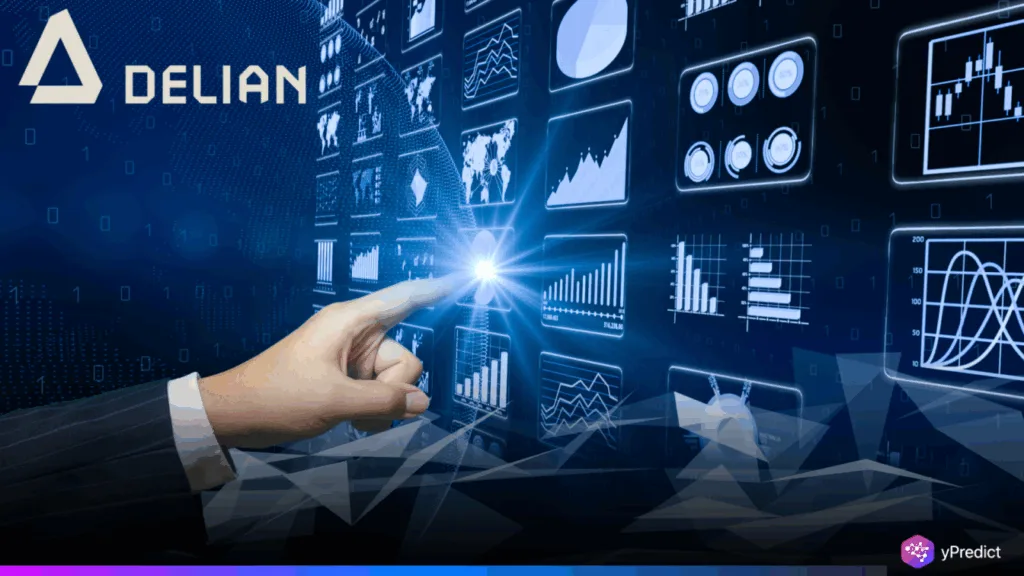
Delian Alliance Industries is a Greek company that is at the forefront of the new age of autonomous defense systems. Which are fueled by artificial intelligence. Their technology includes AI-powered drones, surveillance towers, and naval vehicles aimed at border monitoring and reacting to a threat. Received a spotlight after the recent successful Series A funding round of 14 million dollars. These systems are promised by the company to provide an option for scale. Comparatively low cost in place of typical defense platforms. Delian seeks to bring military-grade technology to the table by implementing AI. Capable of detecting threats in real-time and creating navigational bands and missions.
AI Integration Is Reshaping Surveillance, Defense, and Threat Detection
The AI-based systems developed by Delian are a strategic change in the direction that modern militaries are taking in defense. Computer vision and sensor fusion enable the Lambda Autonomous Surveillance Tower (LAST) to observe intrusions, fires, and infrastructure threats. On wide territories with more than 95% accuracy. Interceptigon has a series of drones and USVs used to cover coastal and underwater areas. Act as either autonomous or swarms of drones with unique advantages in GPS-deprived areas, such as in the Baltic and the Aegean. The systems allow autonomous coordination without human intervention. Operate real-time sensor data collection, and have the capabilities of delivering immediate reactions to attacks.
Behind these capabilities is machine learning that improves accuracy over time. AI models are trained on diverse environmental and tactical data, enhancing resilience and situational awareness. According to Delian’s CEO, this enables nation-scale deployment with minimal operational overhead. The company’s emphasis on “sovereign by design” systems means customers retain full control, reducing foreign dependencies. With applications in border security, infrastructure defense, and anti-access/area denial (A2/AD) operations, Delian’s suite of technologies positions it as a rising defense tech prime in Europe.
Strategic Benefits Come with Ethical and Operational Trade-Offs
Whereas reducing the cost and limiting the risk to the human soldiers, the systems employed by Delian raise controversial matters out in the open. The use of autonomous drones and kamikaze systems draws concern about accountability in deadly judgments. A system without any human supervision may lead to misidentification or even unplanned interaction with grave outcomes. The urgency of these debates lies in the fact that the systems of Delian are being ushered through demo to deployment, and in NATO countries with increasing interest in the scalability of solutions in times of increasing geopolitical tension.
Security experts also note that AI systems lack security, as they are prone to spoofing and hacking. The CEO, Dimitrios Kottas, has recognized the ethical issue of developing the pilotless guns, the dilemma between innovativeness and long-term ethical accountability. However, proponents respond that such systems enable democracies to be competitive without paying billions of dollars to maintain legacy systems. There is pressure on regulators to create definite regulations on how to use AI in warfare, particularly as Europe fast-tracks its defense technology plan. The governing processes determine whether AI autonomy becomes a stabilizer or a source of increased escalation, not the effectiveness of their functioning.
AI-Driven Defense Systems Gain Ground, but Oversight Is Key
The defense technologies of Delian Alliance Industries based on AI are the new twist in European military policy. Their independent towers, drones, and USVs provide efficient and scalable solutions to national security, particularly where environments are complex. The size of the recent financing demonstrates a high level of investor trust in the company, yet the rest of the road to success cannot be built solely on technical achievements. With AI being more and more used to automate sensitive defense processes, the topic of ethics, responsibility, and global policy will characterize the second wave.





